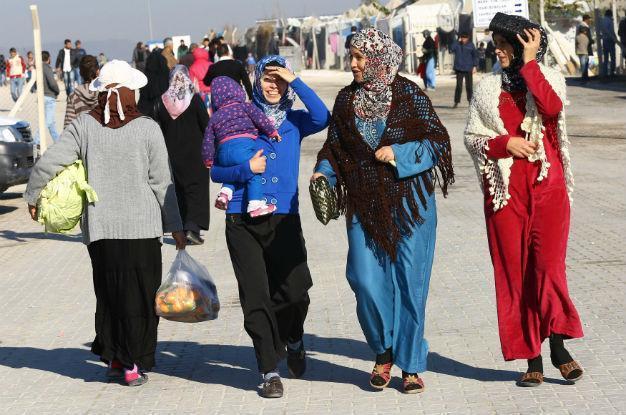ILO joins UNHCR in welcoming Turkey’s work permit offer to Syrian refugees
ANKARA

AFP photo
Leading international bodies have welcomed Ankara’s presentation of new regulations that allow many of the 2.5 million Syrian refugees in Turkey to apply for work permits, underlining that the regulations would allow refugees to build a decent life.
“This will help move refugees to the formal economy, enabling them to build a decent life for their families and giving them an opportunity to contribute to society. The legal and formal work of refugees will lead to improved working conditions, allow social protection, and will benefit not only the refugees themselves but also labor markets and the economy,” Numan Özcan, the director of the International Labor Organization’s (ILO) Turkey office, said on Jan. 19.
A cabinet decision allowing Syrians to work formally in Turkey went into force after being published in the Official Gazette on Jan. 15.
Commenting on the move, Özcan said the ILO is “ready to assist the government and social partners to turn this step into an opportunity for decent work and decent life for refugees and host communities.”
Earlier, Filippo Grandi, the U.N. High Commissioner for Refugees, hailed the decision as a “courageous” step forward for refugees.
“Jobs mean dignity; a dignified life where you don’t have to beg for money or to look for money from associations or the government. I think it is very big step,” Grandi said during a visit to Turkey, which he chose for his first official visit in his capacity as high commissioner.
Speaking after the regulations were announced, he added that other countries should follow Turkey’s lead.
“I believe Turkey is an example of how refugees should be received,” he said.
According to Ankara’s decision, work permits will be granted to migrants fleeing conflict and taking refuge in Turkey. Although it did not specify nationality, the measure is chiefly aimed at the over 2.2 million Syrians in the country who have fled the almost five-year war in their homeland, as well as some 300,000 Iraqis.
